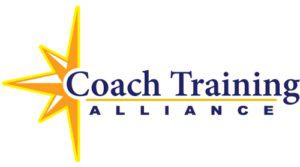
How to Become an ACC ICF Coach
Becoming an ACC ICF Coach is an exciting and rewarding journey to Coaching Excellence.
Welcome, aspiring coaches! Are you looking to become a life coach or executive coach and need help navigating the process to get certified with ICF? If so, you’ve come to the right place. In this article, we’ll explore the process of becoming an ICF Associate Certified Coach (ACC) with the International Coaching Federation (ICF) via the Level 1 Pathway or Portfolio Pathway.
Before embarking on your path to becoming an ACC ICF coach, it’s important to understand that the International Coaching Federation (ICF) is one of several professional associations for coaches. ICF ACC Credentialing is not required to coach professionally; however, many aspiring coaches consider ICF as the gold standard in professional coaching and seek credentialing from ICF because they offer third party validation, credibility, recognition, and a solid foundation for your coaching practice. Many organizations want a coach training program that is approved by ICF. Getting your ACC coach credentials is a meaningful accomplishment and a major milestone during your career in coaching, So, let’s dive in and discover the exciting journey that awaits you!
- Understanding ICF and what they do
International Coaching Federation (ICF) provides both membership and independent accreditation for coaches. Part of their mission is to advance the field of professional coaching by setting standards, ethical guidelines and a code of conduct for coaches. Aspiring coaches who wish to receive credentials from ICF as evidence that they have completed a comprehensive training and professional development can apply to become credentialed at the ACC, PCC or MCC level. Note: You do not have to join ICF to become credentialed; however, if you would like to join ICF as a member, you must hold (or be in pursuit of) an ICF credential at the ACC, PCC or MCC level. Information on the mission and value of ICF here. - What is an ACC Coach?
ICF offers three levels of accreditation: ACC, PCC and MCC. All ICF credentialing levels have the same general requirements: Education Hours, Mentoring Hours, Experience Hours and a Final Performance Evaluation. The Associate Certified Coach (ACC) level has the lowest threshold requirements which include 60 hours of initial education, 10 hours of mentoring, 100 hours of experience and a Final Performance Evaluation where you demonstrate your ability to coach at the ACC level. If you want to become an ICF Associate Certified Coach, you have to complete all the requirements and pass the ICF Credentialing Exam. - Selecting the Right Coach Training Program
While there are many reputable training organizations, selecting one that will help you satisfy the ACC requirements is crucial. Naturally, you want an initial coach training program that will provide you with the necessary skills and training to be a great coach, but you also want to consider if that program will that make is easy (or difficult) when it comes time for you to submit your application to ICF. “Level 1 Programs” make it simple and straightforward to apply to ICF (see Level 1 Pathway below). Other programs may provide excellent training, but can be cumbersome and confusing when it comes time to submit your application. Coach Training Alliance is an accredited Level 1 Provider. - How do I Apply to ICF?
When applying to ICF, aspiring coaches must document successful completion of the ACC requirements. There are a few options for how an applicant can provide documentation:- Level 1 Pathway – This is the easiest and least complicated way to apply to ICF. Level 1 Programs are comprehensive and include all the ACC required activities (initial coach training, mentoring and final performance evaluation). Candidates who successfully complete a Level 1 Program with an Accredited Coach Training Organization will receive documentation from that organization certifying successful completion of all requirements. These applicants only need to submit this one document when they apply to ICF which makes the process simple and straightforward.
>> Register for the next Coach Training Alliance CCP Level 1 training program << - Portfolio Pathway – Candidates can choose to complete their training in an a-la-cart manner with a variety of coach training programs from a variety of schools. Please keep in mind the following:
- Documenting 60 hours of education via the Portfolio Path: Not all training programs are eligible. Courses that are ICF approved for CCEs in Core Competencies are eligible. Non-ICF approved programs may or may not be accepted. For non-ICF approved programs, ICF requires applicants to submit robust documentation about course syllabus, materials and other details to determine if the training meets the ICF criteria for Core Competencies.Documenting.
- Mentoring: Not all coaches are qualified to provide mentor coaching. ICF posts criteria and guidelines for mentor coaching. When using the portfolio path, it will be the applicant’s burden to verify that their mentor coach is a coach in good standing, qualified to conduct mentor coaching for the ACC level and conducted according to ICF timeline and definition of mentor coaching.
- Documenting Final Performance Evaluation: When applying for ACC via the Portfolio Path, applicants will need to submit recordings demonstrating their ability to coach at the ACC level as part of the final performance evaluation. Applicants will also need to provide corresponding transcriptions of their coaching demonstrations. ICF will conduct the final performance evaluation; this may take up to 12-18 weeks. If all coursework, mentoring and final performance evaluations provided by the candidate are accepted by ICF, the application will be considered ‘submitted’. As you can see, the application process for “Level 1 Pathway” is fast-tracked, streamlined and far less confusing. Note: For coaches who started their coach training in July 2022 or earlier, please visit ICF pathway for additional options on how to apply for ACC.
- Documenting 60 hours of education via the Portfolio Path: Not all training programs are eligible. Courses that are ICF approved for CCEs in Core Competencies are eligible. Non-ICF approved programs may or may not be accepted. For non-ICF approved programs, ICF requires applicants to submit robust documentation about course syllabus, materials and other details to determine if the training meets the ICF criteria for Core Competencies.Documenting.
- Level 1 Pathway – This is the easiest and least complicated way to apply to ICF. Level 1 Programs are comprehensive and include all the ACC required activities (initial coach training, mentoring and final performance evaluation). Candidates who successfully complete a Level 1 Program with an Accredited Coach Training Organization will receive documentation from that organization certifying successful completion of all requirements. These applicants only need to submit this one document when they apply to ICF which makes the process simple and straightforward.
- Passing the ICF Credentialing Exam: Congratulations! You’ve submitted your application; you are almost done. Once your application has been accepted, all ICF Credentialing applicants must pass the ICF Credentialing Exam. The written exam is designed to test your understanding of the ICF definition of coaching, core competencies and code of ethics. For more information about the exam visit ICF. Applicants who pay the application fee and receive a passing score on the exam will receive their credentials as an ACC Coach ICF.
Choosing an accredited “Level 1 Training Organization” is critical to your success. Many aspiring coaches want to make sure their training is approved by ICF because they want the assurance to know that their training is high quality and they want the option to become ACC Credentialed should they choose to do so. Rest assured, with Coach Training Alliance, you can begin your initial coach training now and decide later whether you wish to advance and complete your ICF Associate Certified Coach credentialing in a simple straightforward manner.
The ACC Coach ICF Credentialing options can be confusing! But we hope this post has provided you with valuable insights and guidance to embark on your journey. If you have additional questions, join Coach Training Alliance’s free becoming a coach workshop. We’ll guide you through the process of selecting the right coach training program and you can ask questions about the education and process to become an ACC Coach. If you choose to pursue ACC Credentialing with ICF, Coach Training Alliance will place you into our Level 1 Training Program and assist you with reciprocal peer coaching to acquire and log coaching hours and help you complete your mentor coaching. We help you stay on track and complete of each requirement. We will connect you with support to develop your capability and learn what it means to coach at the ACC level and you will have access to tools and resources to prepare for the ICF Credentialing Exam.
You don’t have to do this on your own. Coach Training Alliance will partner with you to pursue you ICF ACC Credentialing.
Remember, becoming an ACC coach at ICF is not only about acquiring a prestigious credential but also about continuously honing your skills and making a positive impact on the lives of your clients. Embrace the path ahead, and may your coaching journey be filled with growth, fulfillment, and endless possibilities!
>> Start on your path to becoming an ICF accredited life coach with the CTA Certified Coach Program <<

